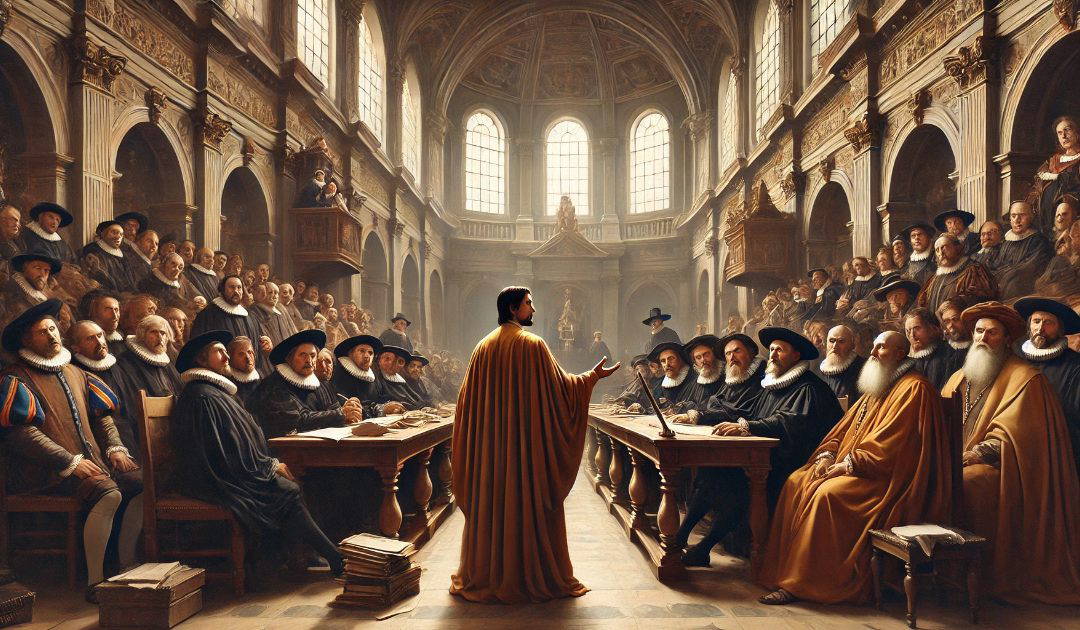The On This Day website spoils me with choice for 27th January. King Charles I was found guilty and sentenced to beheading in 1649. King James VI had a Scottish schoolmaster Dr John Fian burned for witchcraft in 1591, and the Vatican opened a blasphemy and theological heresy trial against Giordano Bruno in 1593. I’m going to have to run with Giordano Bruno. After completing The Spy who Sank the Armada I began scanning thorough history looking for inspiration. The burning of Giordano Bruno for the heresy of writing that the Earth revolved around the Sun grabbed my attention. Fire and Earth has the conflict between faith and reason at its heart, and I had a series on my hands.
Giordano Bruno (1548-1600) was an Italian philosopher, mathematician, and astronomer, whose ideas were revolutionary for his time and ultimately led to his execution by the Roman Catholic Church. Born in Nola, near Naples, Bruno was a Dominican friar who became disillusioned with the limitations of dogmatic theology and sought a broader understanding of the universe.
Bruno’s philosophical journey began with his studies of Aristotelian philosophy and the works of Plato. However, he quickly moved beyond these traditional frameworks, embracing a more expansive view of the cosmos. He is best known for his cosmological theories, which proposed that the universe is infinite and contains numerous worlds similar to Earth. This idea was radical during a time when the geocentric model, which placed Earth at the center of the universe, dominated scientific thought.
Bruno’s belief in an infinite universe was closely tied to his pantheistic views, which suggested that God is immanent in the universe rather than a distant creator. He argued that the divine is present in all things and that the universe itself is a manifestation of the divine. This perspective was in stark contrast to the prevailing religious doctrines of his time, which emphasized a more anthropocentric view of creation.
In addition to his cosmological ideas, Bruno was also a proponent of the Copernican heliocentric model, which posited that the Earth and other planets revolve around the Sun. He expanded on this theory, suggesting that the stars are distant suns with their own planetary systems. This was a significant departure from the accepted views of the time and laid the groundwork for later astronomical discoveries.
Bruno traveled extensively throughout Europe, engaging with various intellectual circles and spreading his ideas. He spent time in cities such as Geneva, Paris, and London, where he lectured and debated with scholars and scientists. His works, including “On the Infinite Universe and Worlds” and “The Ash Wednesday Supper,” explored themes of metaphysics, the nature of the universe, and the relationship between humanity and the divine.
Despite his contributions to philosophy and science, Bruno’s ideas were met with resistance from both religious and academic authorities. In 1592, he was arrested by the Inquisition in Venice and later transferred to Rome. Over the course of his trial, he refused to recant his beliefs, which included his views on the infinite universe and the nature of God. His steadfastness ultimately led to his condemnation.
Giordano Bruno was executed on 17th February 1600 by burning at the stake in Campo de’ Fiori, Rome. His death marked a significant moment in the conflict between science and religion, symbolizing the dangers faced by those who challenged established beliefs. Bruno’s legacy has endured, and he is often celebrated as a martyr for free thought and intellectual inquiry.
During my research for Fire and Earth I discovered a few more interesting things about Bruno. He was known as the “Memory Man” because he could memorise vast tracts of text and recite them back. The other is that he was working as a diplomat trying to secure peace between England and France, and that this is the real reason that he was executed. The last thing that Spain wanted was peace between England and France, since they would then control the English Channel, and could deny Spain access to its conquests in Flanders. So Spain, who were the chief financiers of the Catholic Church, encouraged the Pope to arrange Bruno’s trial and execution.

